31 citations,
February 1999 in “Dermatologic surgery” Sun exposure after laser hair removal can cause skin darkening, which is hard to treat and requires avoiding UV light.
 17 citations,
February 2013 in “PLOS ONE”
17 citations,
February 2013 in “PLOS ONE” 6-Gingerol, found in ginger, may slow down hair growth and could be used for hair removal.
[object Object] 9 citations,
June 2019 in “JAAD case reports” Laser hair removal can help treat acne keloidalis nuchae, but results vary and a standard scoring system is needed.
90 citations,
February 2000 in “Dermatologic Surgery” Alexandrite laser hair removal is safe for darker skin tones.
21 citations,
April 2019 in “Journal of cosmetic and laser therapy” Laser hair removal is popular for long-term hair reduction but carries risks, requiring well-trained operators and better regulations, especially in South Africa.
 1 citations,
January 2021 in “Journal of Dermatology and Dermatologic Surgery”
1 citations,
January 2021 in “Journal of Dermatology and Dermatologic Surgery” Taking Vitamin D supplements may increase the risk of skin darkening after laser hair removal.
 September 1998 in “JEADV. Journal of the European Academy of Dermatology and Venereology/Journal of the European Academy of Dermatology and Venereology”
September 1998 in “JEADV. Journal of the European Academy of Dermatology and Venereology/Journal of the European Academy of Dermatology and Venereology” The document concludes that individualized treatments for hair issues are effective, certain hair changes can indicate neurocutaneous diseases, specific lotions improve skin health, laser hair removal works but needs more study on long-term effects, men's cosmetics are diverse, peeling is effective but can have side effects, and facial pigmentation is often due to overactive skin cells.
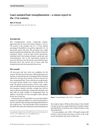 11 citations,
June 2005 in “Journal of Cosmetic Dermatology”
11 citations,
June 2005 in “Journal of Cosmetic Dermatology” Lasers in hair transplantation show promise but are not yet standard, with current methods causing some side effects and needles still being preferred for creating recipient sites.
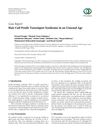 4 citations,
January 2015 in “Case reports in urology”
4 citations,
January 2015 in “Case reports in urology” An 8-year-old boy recovered from a rare case of penile tourniquet syndrome after hair removal surgery.
 1 citations,
January 2017 in “Elsevier eBooks”
1 citations,
January 2017 in “Elsevier eBooks” The document concludes that new treatments for hair loss may involve a combination of cosmetics, clinical methods, and genetic approaches.
 53 citations,
April 2018 in “Journal of The American Academy of Dermatology”
53 citations,
April 2018 in “Journal of The American Academy of Dermatology” Cancer treatments often cause hair disorders, significantly affecting patients' quality of life, and better management methods are needed.
 51 citations,
January 2004 in “Skin Pharmacology and Physiology”
51 citations,
January 2004 in “Skin Pharmacology and Physiology” The document explains hair growth and shedding, factors affecting it, and methods to evaluate hair loss, emphasizing the importance of skin biopsy for diagnosis.
 77 citations,
April 1999 in “Dermatologic Clinics”
77 citations,
April 1999 in “Dermatologic Clinics” The document concludes that follicular unit transplantation offers more natural results and better graft survival than older hair transplant methods.
 24 citations,
March 2015 in “Dermatologic Surgery”
24 citations,
March 2015 in “Dermatologic Surgery” Home-use cosmetic laser and light devices show modest results for hair removal and acne treatment, but more research is needed for confirmation.
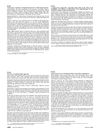 January 2008 in “Journal of The American Academy of Dermatology”
January 2008 in “Journal of The American Academy of Dermatology” Trichoscopy is a helpful and quick method to identify different types of hair loss in women.
 112 citations,
July 1998 in “Journal of Investigative Dermatology”
112 citations,
July 1998 in “Journal of Investigative Dermatology” Ruby laser pulses best destroy hair follicles during the growth phase and effectiveness varies with laser intensity; melanin is key for targeting, and timing treatments can improve results.
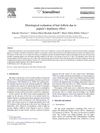 13 citations,
January 2007 in “International journal of pharmaceutics”
13 citations,
January 2007 in “International journal of pharmaceutics” Papain cream removes hair better than papain gel, causing hair follicles to widen and skin to thicken.
 6 citations,
April 2012 in “Lasers in surgery and medicine”
6 citations,
April 2012 in “Lasers in surgery and medicine” Laser hair removal can cause a severe itchy rash in some allergic individuals, treatable with steroids.
 101 citations,
June 2005 in “Journal of The American Academy of Dermatology”
101 citations,
June 2005 in “Journal of The American Academy of Dermatology” Very few people experience increased hair growth after laser hair removal, especially those with darker skin and black hair.
 60 citations,
December 2015 in “Clinical and experimental dermatology”
60 citations,
December 2015 in “Clinical and experimental dermatology” Laser hair removal improves quality of life but emotional benefits decrease over time, suggesting more treatments are needed for lasting effects.
 22 citations,
February 2002 in “Clinics in Geriatric Medicine”
22 citations,
February 2002 in “Clinics in Geriatric Medicine” Many elderly women experience unwanted facial hair and various hair loss conditions, with treatments available for each condition.
 10 citations,
January 2007 in “Journal of cosmetic and laser therapy”
10 citations,
January 2007 in “Journal of cosmetic and laser therapy” The IPL device is safe, effective, and has high patient satisfaction for hair removal.
 9 citations,
May 2021 in “Archives of Dermatological Research”
9 citations,
May 2021 in “Archives of Dermatological Research” Home-based skin care devices are generally safe and effective for hair removal, promoting hair growth, treating wrinkles and acne, but results for psoriasis treatment are mixed.
 7 citations,
August 2016 in “Nursing for Women's Health”
7 citations,
August 2016 in “Nursing for Women's Health” To prevent and treat Hair-thread tourniquet syndrome in infants, keep a close eye on their limbs, manage maternal hair loss, and educate parents and healthcare providers.
[object Object]  7 citations,
March 2016 in “Journal of Cosmetic and Laser Therapy”
7 citations,
March 2016 in “Journal of Cosmetic and Laser Therapy” Home-use lasers and IPL devices are unlikely to directly cause paradoxical hair growth; it may be linked to inflammation or hormonal issues.
 2 citations,
June 2022 in “International Journal of Biomedicine”
2 citations,
June 2022 in “International Journal of Biomedicine” The review suggests a comprehensive approach to treat hirsutism, focusing on hair removal, medication, and managing emotional effects.
 March 2012 in “Journal of the American Academy of Dermatology”
March 2012 in “Journal of the American Academy of Dermatology” African Americans lack knowledge about laser hair removal safety, Nd:Yag laser treatment is effective with high satisfaction, pressure during surgery can cause hair loss, and treating ovarian inflammation may help with alopecia areata.
 October 2002 in “Dermatologic Surgery”
October 2002 in “Dermatologic Surgery” The document concludes that careful planning, efficient use of every hair graft, and setting surgical priorities are crucial for successful hair restoration surgery.
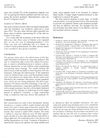 October 1997 in “Dermatologic Surgery”
October 1997 in “Dermatologic Surgery” The Epilight Hair Removal System is effective for temporary hair removal with few side effects, but more research is needed to confirm its safety and long-term results.
 2 citations,
July 2020 in “Trends in Urology and Men's Health”
2 citations,
July 2020 in “Trends in Urology and Men's Health” More men are getting cosmetic surgery, with Botox and hair removal being popular, but these procedures have risks.

























